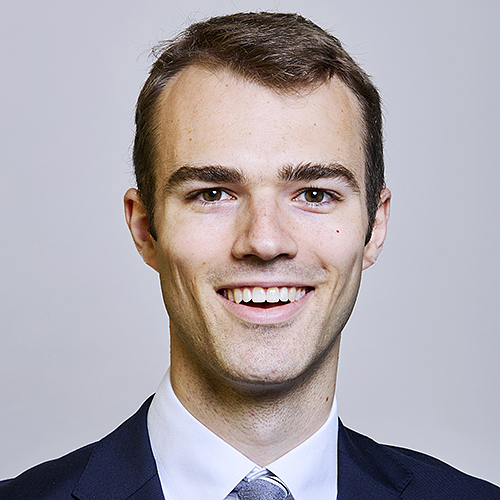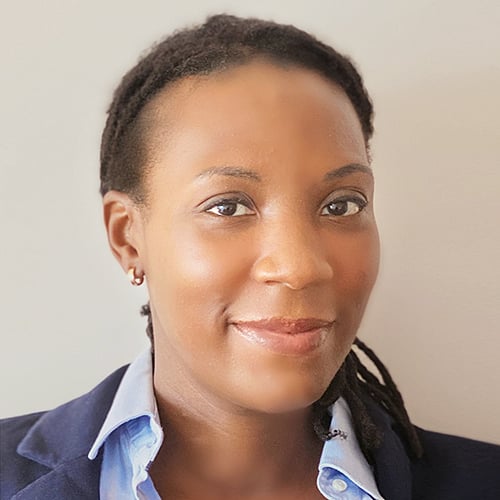Amid the doom and gloom on the global economy, the Islamic finance industry continues to record healthy growth. According to data from Fitch Ratings, the market is estimated to be more than US$3 trillion and is expected to grow further, supported by the rapid development of Islamic banking in such markets as Indonesia.
“Indonesian Sharia banks should benefit in 2023 from consolidation and scaling efforts where they can compete with conventional banks, " says a Fitch Ratings comment. “Islamic banks' gross financing surged by 18.8% year-on-year during the first nine months of 2022, driven by continued expansion in the consumer segment. However, recent consolidation of sharia banks, as showcased in PT Bank Syariah Indonesia, put Islamic banks in a better position to venture into corporate syndication loans; a segment that has been almost untouched.”
Similarly, S&P Global Ratings expects around 10% growth across the industry in 2023. The rating agency believes that there will be a healthy pipeline of sukuk issuances in Middle Eastern countries such as Saudi Arabia and Egypt.
“Corporates are likely to contribute to issuance volumes, particularly in countries where governments have announced transformation plans. This is the case in Saudi Arabia, where the banking system will be limited in its capacity to finance multiple projects related to Vision 2030 implementation,” states an S&P Global Ratings report. “Issuers with high financing needs, such as those in Egypt and Türkiye, are also likely to tap the sukuk market as part of their strategy to mobilize all available resources. For example, Egypt has established a US$5 billion sukuk programme and issued its first sukuk in early 2023 for a total of US$1.5 billion.”
Amid these exciting developments in the Islamic finance market, The Asset is pleased to reveal the winning institutions below as part of the annual Triple A Islamic Finance Awards 2023. Over the review period, issuers such as the Republic of Indonesia (RoI) stood out. A historically frequent sukuk issuer, the RoI, during The Asset’s review period, printed a sizeable sukuk offering which included the first 10-year green sukuk tranche issued by the RoI, cementing the sovereign’s focus on sustainable finance.
Lowest spread
Khazanah Nasional was cited as an expert issuer capturing an opportune market issuance window to raise 2 billion ringgit (US$428.5 million) from the market, an upsize from the planned 1.5 billion ringgit. The final spread it achieved over Malaysian government securities represented one of the lowest recorded in the ringgit sukuk market.
Fellow Malaysia-based issuer Cagamas was also awarded as an expert issuer. During the past year, the firm pursued its sustainability drive via a 300-million-ringgit Asean social SRI sukuk and continued to provide liquidity to the secondary market in Malaysia.
Tenaga Nasional was honoured as one of the Issuers of the Year – Corporate. The group tapped the sukuk market twice in 2022, including the first issuance of sustainability sukuk by TNB Power Generation amounting to 1.5 billion ringgit and the 4-billion-ringgit sukuk by Tenaga Nasional itself.
Saudi-based Riyad Bank was declared Issuer of Year – Financial Institution. It issued the first-ever global offering for an additional tier 1 sustainability sukuk and the first-ever emerging markets AT1 offering in sustainability format.
In addition to recognizing the leading issuers in the market, we are pleased to recognize Maybank Islamic as Islamic Bank of the Year in Asia-Pacific. The bank continues to grow its business across all fronts from retail to commercial banking. Despite the challenging market conditions, Maybank Islamic still maintains a dominant position in the industry in terms of profitability and asset quality.
The Islamic Bank of the Year in the Middle East is Standard Chartered Saadiq, which continues to be a leader in the region by recording significant growth in business units from credit cards to Islamic wealth management. Leveraging the group’s overall technology offering, the bank has made it easier for new customers to be onboarded to its Islamic platform, and is using digital analytics to better offer meaningful products to its growing customer base.
HSBC Amanah is again crowned ESG Bank of the Year. During the review period, the bank continued to sharpen its focus on offering sustainable finance solutions to clients. Whether it be structured deals, supply chain finance or wealth management, HSBC Amanah has been able to embed ESG into different aspects of its product suite.
CIMB takes home a number of key awards this year, including the highly sought-after Best Investment Bank in Asia-Pacific award. During the review period the bank took part in a number of key sukuk deals across Malaysia and Indonesia. In Indonesia, the bank worked with the RoI for its landmark sukuk issuance as well as with several other corporations in the country on their Islamic financing deals. In Malaysia, CIMB was involved in a number of equity deals that had encouraging after-market performance.
Standard Chartered wins the Best Investment Bank award in the Middle East. The franchise, supported by a robust sukuk coverage team, took part in a number of market-defining deals in the region, including those involving sovereign issuers and corporates making their debut international sukuk issuance.
Volatile market
Similar to their banking partners, Islamic buyside firms had to carefully manage market volatility last year. Amid rising interest rates, Islamic asset managers employed various strategies such as quality tilt and duration positioning to potentially generate alpha. By exercising strong credit selection discipline and reducing overall portfolio duration heavily, fund managers sought to mitigate the duration risk and capture potential outperformance relative to the broader market benchmarks.
To implement the strategy on the credit side, asset managers often overweighted high-quality sukuk and underweighted low-quality sukuk. It demonstrated managers’ conviction that high-quality sukuk offer greater resilience in challenging market conditions. For duration management, asset managers reduced duration risk and sensitivity of the portfolio's overall value. By having a tilt towards short-dated sukuk, managers are also positioning their portfolios to benefit from any future increases in interest rates, as the portfolio can be reinvested at higher rates as the bonds mature.
Amid these buyside trends, several asset managers stood out for their ability to withstand the volatility of the past year and deploy strategies to beat their respective benchmarks. Principal Islamic Asset Management wins the award as Asset Manager of the Year, Asia-Pacific. In 2022, the company continued to ride the market turmoil and launched its fifth UCITS fund, the Islamic Global Responsible Equity Fund. Despite the drop in assets under management across the wider industry, Principal Islamic Asset Management doubled down on its ESG investment strategy, adding an ESG layer to its top-down macro and bottom-up research approach.
The Best Rating Agency award is again bestowed on Fitch Ratings, which continues to outpace its competitors with its extensive coverage of Islamic banks, corporates and takaful providers. During the review period, the agency notched up several achievements, including rating the first-ever sustainable sukuk from a financial institution in the United Arab Emirates and the first Islamic bank in Kazakhstan. The agency also continued to publish research reports that provided meaningful commentary on the development of Islamic finance in such markets as Bangladesh and Indonesia.
The Islamic Banker of the Year Award goes to Eqhwan Mokhzanee, CEO of AmBank Islamic. Leading the bank since 2015, Mokhzanee has been proactive in taking the institution to the next level by focusing on critical topics such as sustainability. He has set up a sustainability department and developed eight sector-specific checklists to evaluate ESG risks. The bank has also taken a proactive approach in supporting small and medium-scale enterprises (SMEs) and improving financial inclusion, which proved critical during the pandemic. Moreover, Mokhzanee is a steadfast believer in digitalization, spearheading the bank’s digital offerings. In 2022 the bank launched Malaysia’s first hybrid e-wallet, which allows users to earn a profit from an Islamic hybrid current account. The bank also has built the e-commerce financing-i platform to support businesses increasing their presence online.
The special Lifetime Achievement Award this year goes to Datuk Chung Chee Leong, president and CEO of Cagamas. Datuk Chung has developed the company into an expert issuer in the sukuk market. He has continued to supply sukuk into the Malaysian market, providing important secondary liquidity for the industry. He has led Cagamas’ sustainable finance journey, guiding the company to issue its first-ever Asean sustainability SRI sukuk in 2020, paving the way for like-minded ESG issuers in Malaysia. For Datuk Chung, 2022 was a landmark year as he guided Cagamas in raising 24.9 billion ringgit from the capital markets, the highest since 1999, and the world’s first Islamic reverse mortgage financing for retirees.
For the complete list of Best issuers and Best advisers, please click here.
To participate in the awards ceremony, please contact [email protected]









